|
In April, the Carthage Adventures in Fandom & Cosplay club hosted their annual CarthageCon event (inspired by Comic Con). I was invited to put together a panel to discuss something in the realm of magic, and I landed on a discussion of why magic sucks. Of course, I don't actually think magic sucks (although a lot of it is subpar). I invited Victoria Richter (a student who has taken my Cognitive Science of Magic class and who has seen LOTS of good magic) and John Sturk (the current national president of the Society of American Magicians) to join me on the panel. We discussed some of the historical barriers of entry to the magic community, including magic's whiteness and maleness. We also addressed how many of the tropes of magic are deeply grounded in misogyny. However, we also talked about current trends in magic, including DEI committees and movement towards audience-centric, narrative-driven magic...magic that makes you feel something. John Sturk talked about his experience on the panel in his monthly column in M-U-M Magazine, the official publication of the Society of American Magicians. You can read his piece here.
0 Comments
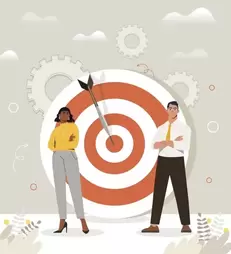 Today, InsideHigherEd has published an essay I wrote while reflecting on time management for faculty members during this era of storm and stress in higher education. I firmly believe I have articulated the appropriate mindset for faculty to adopt...especially under current circumstances. I look forward to hearing folks' thoughts on the piece at https://www.insidehighered.com/opinion/career-advice/advancing-faculty/2024/02/29/benefits-being-selfish-teacher-scholar-opinion Educators: I have a presentation on this topic I would be pleased to offer to your faculty group. Friend of the MAGI-Lab, Joe Diamond, will appear on an episode of "Penn & Teller Fool Us" on Friday, February 2nd. If you want a peek behind the magic curtain, join Joe and me for a Q&A at the Stage Left Cafe in Woodstock, IL on the evening of Tuesday, February 20th. The event is free and open to the public! More info on the Facebook event page here: https://fb.me/e/4nPhM8Xtp
2/21/2024 Update: Video from the event is available at https://fb.watch/qmi77IOsBS/. 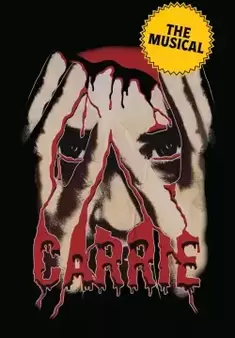 I had the pleasure of serving as the illusion consultant for a recent production of "Carrie, the Musical" at Carthage College. We did some fun stuff, making a chair levitate and a statue of Jesus float through the air. A faculty respondent for the Kennedy Center / American College Theatre Festival saw the show and issued a Certificate of Merit for our work! "Martin McClendon, William Newcomb, Anthony Barnhart - Illusions and Special Effects - These were a collaborative creation to make this story magical. It is deserving of recognition." This summer, Sarah Tuchel, and I will be traveling to London to present some of our work at the British Society of Aesthetics (BSA) Workshop on the Art & Aesthetics of Illusions, funded by BSA and co-sponsored by the Science of Magic Association (SoMA) and in collaboration with The Magic Circle Foundation (TMCF) and The Magic Circle (TMC). In collaboration with Gustav Kuhn and Dan Simons, we've been interviewing expert magicians in an attempt to find the boundaries of performance magic. Where does magic end and some other performance art begin? Here is the abstract for our presentation: 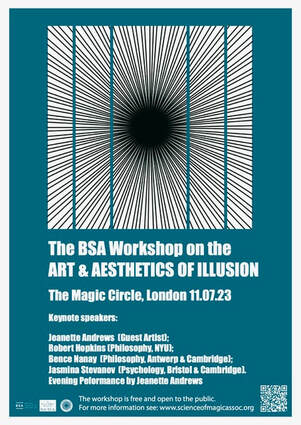 “[Magic] is so big that a simple definition seems impossible, so vague as to be an empty vessel waiting to be filled with meaning. How are we to determine what we are talking about when we use the word magic?” (Neale & Parr, 2002, The Magic Mirror, p. 6) Aside from The Magic Mirror, few published works in magic directly address magic’s underlying aesthetics or its theoretical basis. Instead, information is transmitted informally between magicians through lectures and personal conversations (see Rissanen et al., 2013). In order to try to capture some of this socially-disseminated information, we carried out a series of interviews with acclaimed, expert magicians. In these interviews, we probed their personal definitions of magic, their beliefs about what constitutes “good” and “bad” magic, and their attitudes about the aesthetic boundaries of performance magic. We report the outcomes of a thematic analysis of these interviews, highlighting points of agreement and disagreement across this small sample of experts in hopes that they will be a boon to future research in the Science of Magic. We will make the full text and video of these interviews publicly available (with participant consent) through the Science of Magic Association website.
I had a fun conversation with my friend, Andy Luttrell, on his "Opinion Science"podcast. We covered a lot of ground, from magic and mentalism to attention to education to skepticism. Andy's pedigree is similar to mine; he was a mentalist before he was a psychologist. Consequently, we went down some fun rabbit holes. As the kids say, "smash that 'like' button and subscribe" to Andy's podcast.
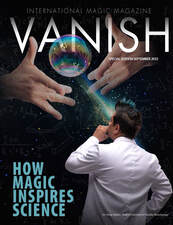 Today, September 2, 2022, is World Magic Day. Coincidentally, it also marks the release of a special issue of Vanish Magazine devoted to the interaction of science and magic. The issue includes a piece by me, exploring the pedagogical value of using magic in the classroom. It also includes pieces from many of my friends and colleagues, including Gustav Kuhn, Jason Leddington, Jeanette Andrews, Jamy Ian Swiss, and Richard Wiseman. The issue is free to download at https://joom.ag/IjId.
I had a lengthy conversation with Milena Korostenskaja for her Neurocareers Podcast...So lengthy that it will be broken into two parts! We covered a lot of ground, from the science of magic to how undergraduate students can set themselves up for success in graduate school and on the job market. The first part is out now. I'll update this post once the second part becomes available.
08/29/2022 Update: And Part 2 is now available!
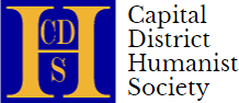 I'll be presenting my "Magic in the Lab" talk virtually for the Capital District Humanist Society on August 14th at 1pm Eastern Time. The event is free and open to the public with registration. To register, send an email request to w[email protected] several days prior or login to their Meetup page: https://www.meetup.com/Capital-District-Humanist-Society/. Click on Join, then on Attend, and use the RSVP function. The Zoom link will then be available to you. Update: Video from this presentation is available below! 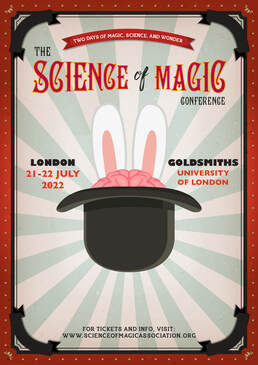
It's been three years since I hosted the Science of Magic Association conference in Chicago. After our pandemic-induced hiatus, the SoMA committee is excited to host our third biennial(ish) conference in London next month. For my part, I will be presenting data from my newest publication, in press at Psychology of Consciousness. It will be officially released in September, appearing in a special section devoted to understanding consciousness through the science of magic. We have an incredible line-up of peer-reviewed presentations and keynote addresses. You can peek at the conference program here. See you on the other side of the pond!
Update: Video from my presentation at #SoMA22 appears below. I had the pleasure of joining my colleague, Dr. Kateryna Sylaska, for a virtual discussion of the psychology of awe, organized by the Purposeful Planning Institute. We had a fun conversation that highlighted some of the mysteries of awe (and the inconsistencies in the awe research program).
I am pleased to announce the publication of some research that has been a decade in the making. We set out to find concrete evidence of self-deception among performing magicians, but we ended up finding something arguably more interesting! This work was carried out in collaboration with Kaitlyn Richardson and Shawn Eric. Kaitlyn was an undergraduate working in my lab. She is now in law school at the University of Nebraska. Shawn Eric is a professional magician living in Phoenix. This work is being published in a special section of Psychology of Consciousness devoted to the science of magic. https://doi.org/10.1037/cns0000321
Updates: This research has now been featured in a few popular media stories, linked below.
The entire special section has also been packaged together in an open-access format by the Science of Magic Association. You can read all the pieces, including mine, at https://scienceofmagicassoc.org/blog/2022/10/11/soma-special-section-2022.
In the lead-up to my Darwin Day talk for the Dubuque Area Humanists, I was interviewed by Cindy Kohlmann for her KDTH "Voices of the Tri-States" program. It was a nice reminder for me that scientific skepticism (not to be confused with science skepticism) is a foreign perspective to many. Have a listen below!
My colleague, Gregory Berg, invited me on his daily radio show to discuss my J-Term course devoted to the Cognitive Science of Magic. Of course, our discussion veered in some other directions, as it always does. Have a listen!
I'll be giving my first live, public presentation since the start of the pandemic for the Dubuque Area Humanists' annual Darwin Day celebration on February 21st. The event is free and open to the public (with masking). More details are available here. Update: Video from this presentation appears below. |
AuthorI am an Associate Professor of Psychological Science at Carthage College, in Kenosha, Wisconsin. Archives
February 2024
Categories
All
|
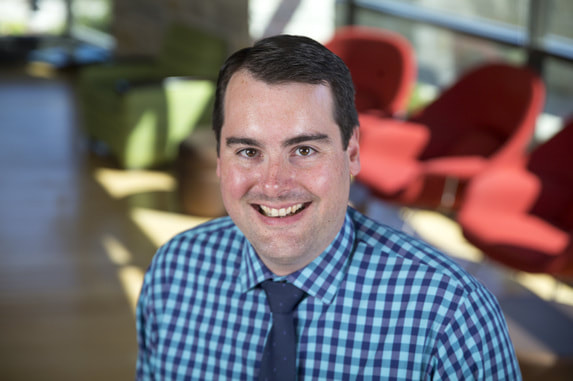
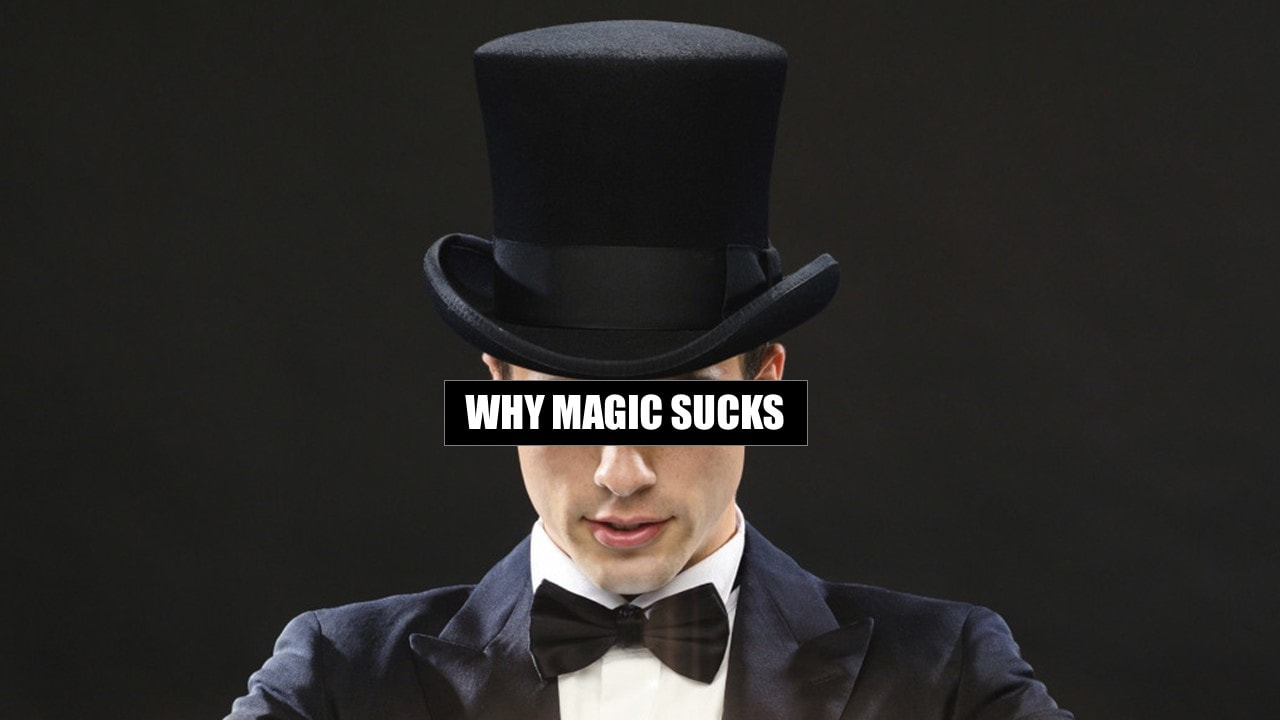
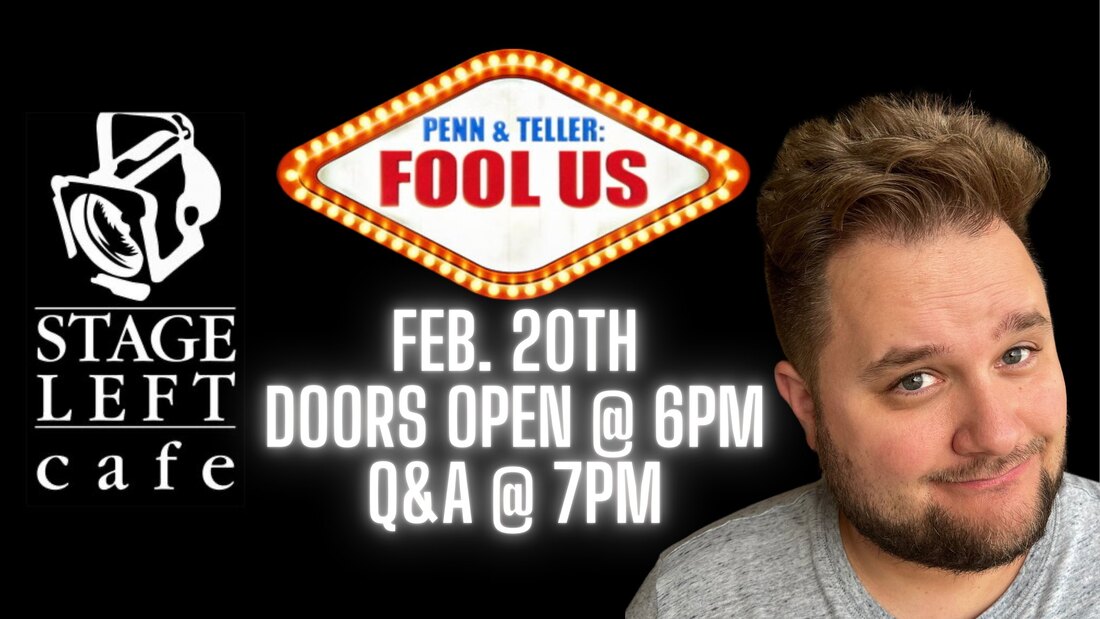
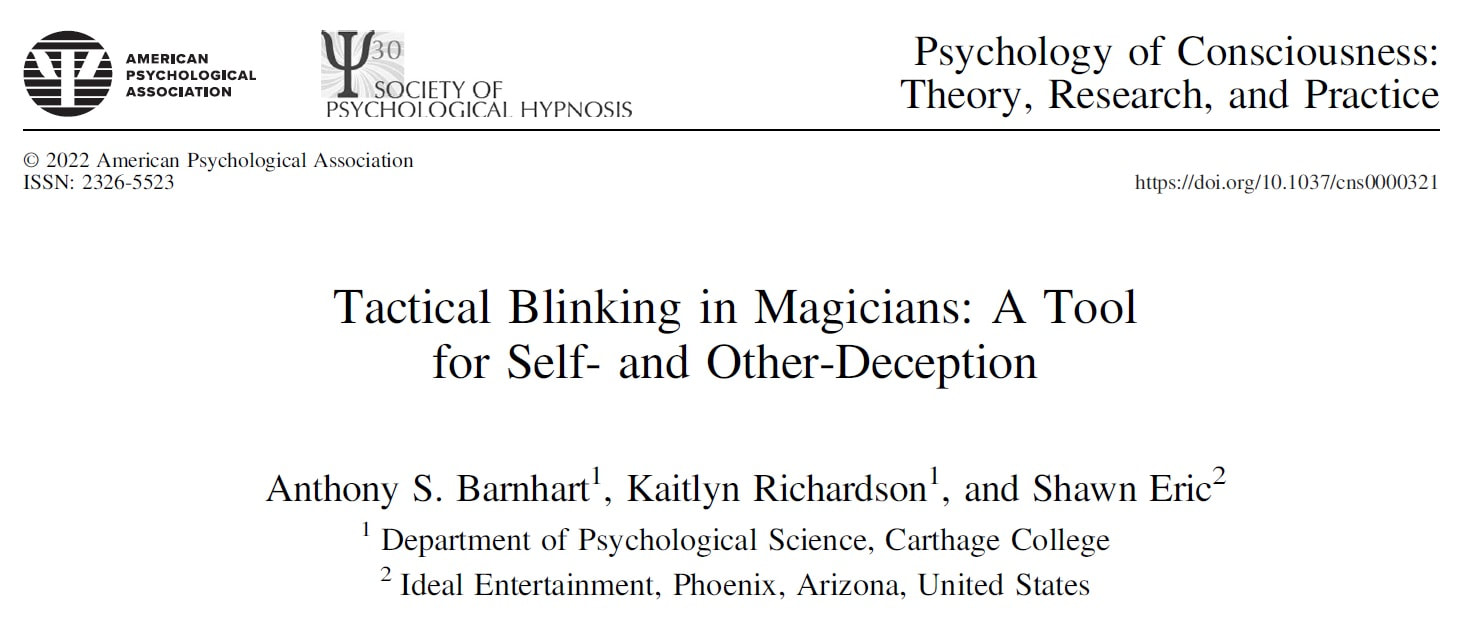
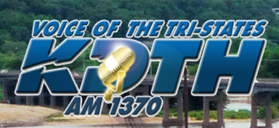
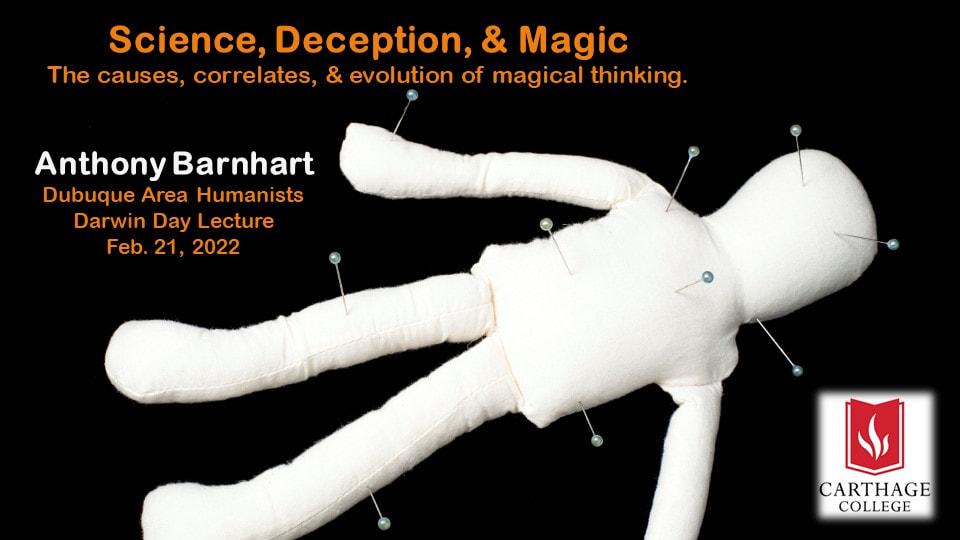
 RSS Feed
RSS Feed
